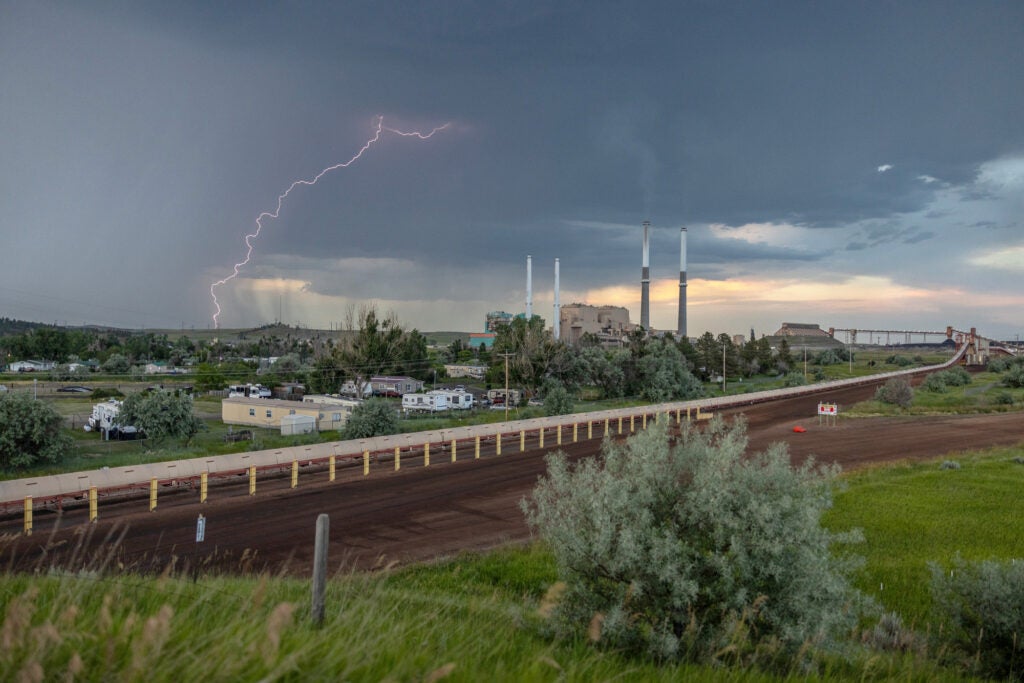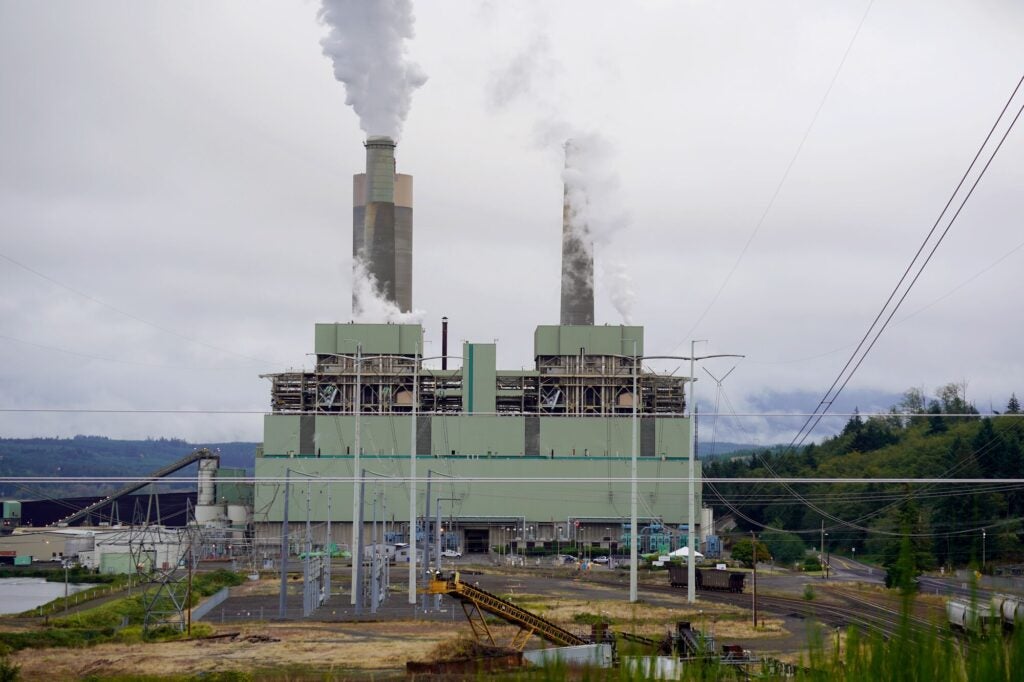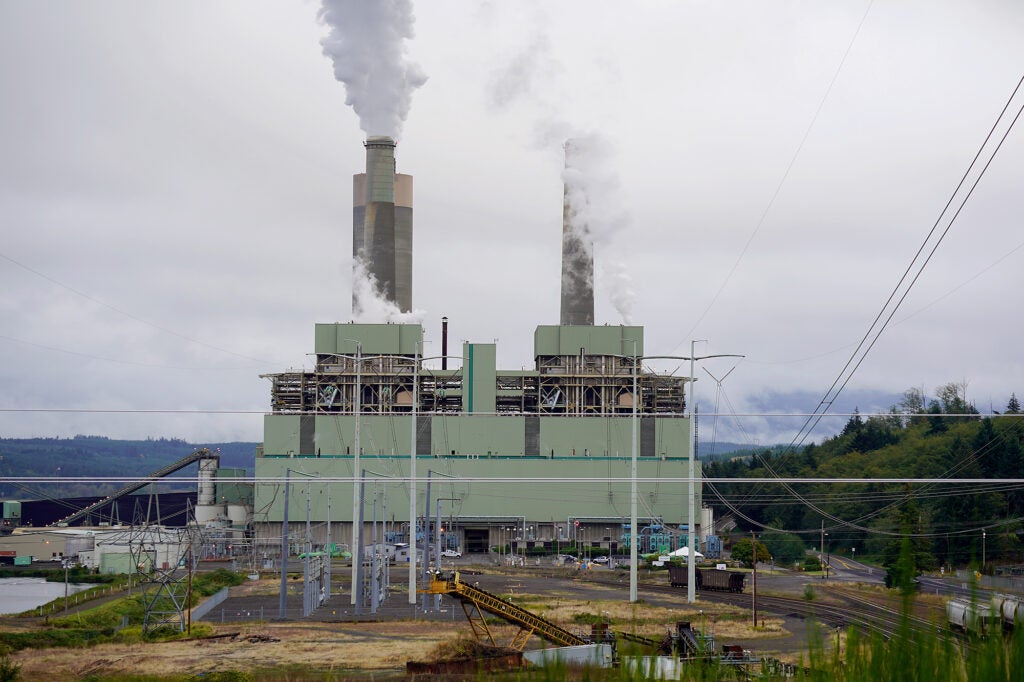(202) 667-4500
dcoffice@earthjustice.org
Washington, D.C.
(215) 717-4520
paoffice@earthjustice.org
Philadelphia, PA
Media Inquiries
Kathryn McGrath
Public Affairs and Communications Strategist
kmcgrath@earthjustice.org
Legal Assistance Inquiries
Contacto de Prensa
Robert Valencia
Estratega de Comunicaciones y Asuntos Públicos Hispanos/Latinos
rvalencia@earthjustice.org
Earthjustice’s Clean Energy Program uses the power of the law to accelerate the transition to 100% clean, pollution-free energy, a necessary step to stopping the climate crisis. We fight for policies that get us there and remove barriers that stand in the way.
Our Clean Energy Program staff are based in Chicago, Los Angeles, New York, Philadelphia, San Francisco, Washington, D.C., and the Boston area.
Our Impact
Ending Reliance on Coal and Other Fossil Fuels
We’re litigating before public utility commissions and the Federal Energy Regulatory Commission to stop utilities from forcing consumers to bail out aging, unprofitable coal, and to demonstrate the true economic, health, and environmental costs of the power sector’s continued reliance on fossil fuels.
And, we’re working to halt the rush to replace retiring coal with fossil gas plants rather than clean energy.
Working in partnership with local communities, we’ve helped to secure the retirement of more than 100 coal plants.
Cleaning Up Coal’s Toxic Legacy and Securing a Just Transition
We’ll keep fighting until existing coal capacity is shut down and the more than 1,400 coal ash ponds and dumps that poison our communities are cleaned up. We won’t stop until the coal industry cleans up its mess.
We are committed to fighting for a clean energy transition that advances justice and equity, benefits workers and the economy, and protects public health.
Strengthening Federal Standards
To get there, we’re working to strengthen and enforce federal air, water, and waste standards that rein in pollution from coal and other fossil fuels used in electricity generation.
Defending Groundbreaking Initiatives; Advancing Vital Reforms
We break down regulatory hurdles to clean energy development and secure utility investment in renewable generation, energy efficiency, and other clean energy alternatives. We defend against industry attacks on distributed energy resources and advance reforms that will enable us to power our grid with 100% clean electricity.
Ensuring Equal Access to Clean Energy
We work with our partners to expand access to clean energy for low-income families and stand up for consumers.
We aim to ensure that communities of color, low-income communities, and Tribal communities — those who are disproportionately harmed by deadly pollution and climate change — are able to actively participate in and benefit from the clean energy transition.
Highlights of our work include:
- Helped ensure that the U.S. Environmental Protection Agency updated 40-year-old standards for power plants. The new standards require the use of affordable, state-of-the-art technologies to reduce or eliminate pollution in our nation’s waterways. Learn more.
- Led the fight for the nation’s first regulations on coal ash, which establish minimum disposal standards and encourage closure of inactive coal ash ponds, and we’ve continued the legal work to strengthen these safeguards. We’ve also collected and analyzed data on coal ash pollution in groundwater. We published a groundbreaking report that shows that groundwater near 91% of power plants with monitoring data contained unsafe levels of one or more of the pollutants in coal ash. Learn more.
- Served as co-counsel in seeking U.S. Supreme Court review of the landmark case FERC v. EPSA, which affirmed that the Federal Energy Regulatory Commission has the authority to remove barriers to “demand response” programs, which compensates consumers for reducing their power use at certain times. Demand response provides tremendous benefits to our environment, helps consumers save money and makes our electricity grid more reliable. We’ve then applied this strong precedent to challenge further barriers to investment in demand response at the Federal Energy Regulatory Commission and before state regulators. Under pressure from our advocacy, the Federal Energy Regulatory Commission initiated new rulemaking to address these ongoing regulatory barriers.
- In 2020, we stopped utilities in Kansas from charging customers who generate their own power more than those who do not, when we challenged a decision approving extra fees for people who use residential solar systems.
- Helped force 37 states, the District of Columbia, and the Virgin Islands come up with plans to curb haze-causing pollution, much of which came from our nation’s biggest and oldest coal-fired power plants. This effort led to cleaner, clearer air in many of our national parks and wilderness areas. Learn more.
- Stopped El Paso Electric Company, a local New Mexico regulated utility, from becoming the first in the nation to establish a separate rate class for rooftop solar customers — and charging higher rates for the power they purchased.
- Negotiated a settlement to commit DTE Energy in Michigan to retirement dates for three coal-fired power plants in the southeastern region that lack modern pollution controls, and to fund electric buses and community-based environmental projects in Wayne County. Learn more.
- Together with an alliance of local groups in Puerto Rico, we developed a compelling vision of a clean, affordable, and hurricane-resilient grid for the island. The Puerto Rico Energy Bureau approved a long-term energy plan that reflects that vision. We’ll continue to push the Energy Bureau to reject all plans for new gas infrastructure on the island and challenge the privatization of the public utility. Learn more.
- Partnered with a coalition of community and solar industry groups to help establish a landmark clean energy project in Maryland. The three-year Maryland Community Solar Pilot Project includes several forward-thinking policies that will help remove barriers to renewable energy.
- Advocated for the creation and implementation of the Illinois Coal Ash Rule — a set of regulations that created stronger requirements for coal ash cleanup and funded cleanup programs through permit fees. We’re continuing to push for improvements to the rule to ensure it makes adequate progress toward rectifying coal’s dirty legacy in Illinois. Learn more.
- Helped defend the Federal Energy Regulatory Commission’s landmark Order No. 841, which breaks down barriers to energy storage technologies that are critical to supporting the transition to a 100% zero emissions grid.




